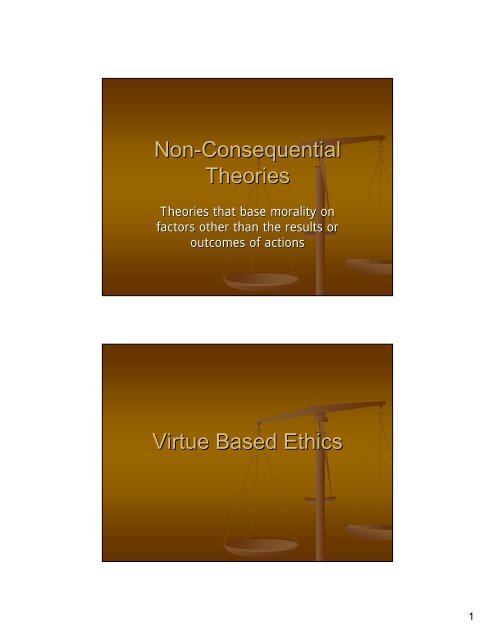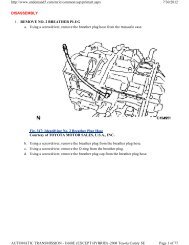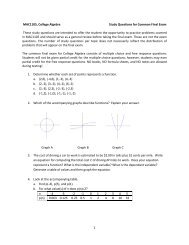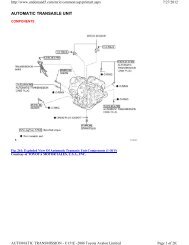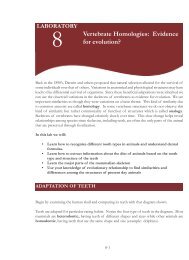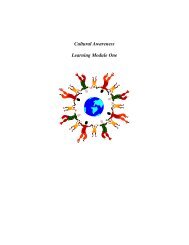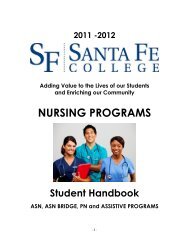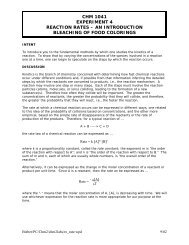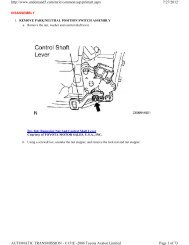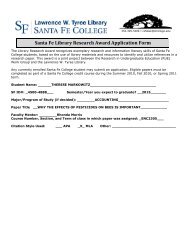Non-Consequential Theories Virtue Based Ethics
Non-Consequential Theories Virtue Based Ethics
Non-Consequential Theories Virtue Based Ethics
You also want an ePaper? Increase the reach of your titles
YUMPU automatically turns print PDFs into web optimized ePapers that Google loves.
<strong>Non</strong>-<strong>Consequential</strong><br />
<strong>Non</strong> <strong>Consequential</strong><br />
<strong>Theories</strong><br />
<strong>Theories</strong> that base morality on<br />
factors other than the results or<br />
outcomes of actions<br />
<strong>Virtue</strong> <strong>Based</strong> <strong>Ethics</strong><br />
1
Greek <strong>Virtue</strong>s<br />
Socrates, Plato, Aristotle<br />
Focuses primarily on personal character<br />
traits and emphasizes the goal of personal<br />
excellence by doing the right thing by<br />
focusing on certain character traits.<br />
Socrates<br />
Emphasized the need for critical thinking<br />
with regards to ethical decision making.<br />
Movement away for tradition, customs and<br />
religious rituals towards critical view of<br />
ethical terms.<br />
Developed the ‘Socratic Socratic Method’ Method of<br />
interrogating someone who claimed to<br />
know the right thing to do.<br />
2
Plato<br />
A student of Socrates<br />
Most influential in spreading the ideas of<br />
Socrates, but more importantly on<br />
investigating the virtues.<br />
Central virtues:<br />
Self-control<br />
Self control<br />
Wisdom<br />
Courage<br />
Justice<br />
Aristotle<br />
Student of Plato<br />
Key term: eudamonia<br />
Happiness<br />
Living well<br />
Flourishing<br />
Considered over a life time<br />
3
Aristotle<br />
All men seek the good.<br />
Teleological theory – emphasis on goal<br />
The eudamonia and virtue are interconnected.<br />
<strong>Virtue</strong> (excellence) is the means to acquiring the<br />
eudaimonia.<br />
eudaimonia<br />
Certain types of actions are wrong regardless.<br />
Two types of virtue<br />
Intellectual<br />
Moral<br />
Aristotle<br />
Golden mean: Doing the right thing, at the<br />
right time, for the right reasons and with<br />
the right motives.<br />
<strong>Virtue</strong> is a state of character, concerned<br />
choice, lying in a mean, that mean relative<br />
to us and determined by rational principle<br />
or by that principle which the rational man<br />
would determine it.<br />
4
Application<br />
Assume natural desire for happiness and<br />
fulfillment .<br />
Determine the virtues called for by the<br />
situation.<br />
Evaluate the options using the Golden<br />
Mean.<br />
Choose the wisest course of action<br />
consistent with the virtues and the Golden<br />
Mean.<br />
Other <strong>Virtue</strong> <strong>Based</strong> <strong>Ethics</strong><br />
Contemporary attempts to focus on the<br />
development of character.<br />
<strong>Virtue</strong>s are chosen which are seen to<br />
promote the best character type.<br />
Typical virtues emphasized:<br />
Trustworthiness, honesty, responsibility,<br />
justice, caring, tolerance, courage.<br />
5
Natural Law Theory<br />
The standard in ethics is human nature.<br />
What are our God given natures?<br />
Reason is given to us.<br />
No conflict between reason and faith.<br />
Reason can be used to prove the truths<br />
of faith and revelation.<br />
6
Division of Basic Values<br />
Biological Characteristics<br />
Distinctly Human Characteristics<br />
Life<br />
Procreative<br />
Knowledge<br />
Sociability<br />
Four basic values.<br />
7
Life<br />
From the natural inclinations that we and<br />
all other animals have to preserve our own<br />
existence, we can infer that life is good,<br />
that we have an obligation to promote our<br />
own health, and that we have the right to<br />
self defense. Negatively, this inclination<br />
implies that murder and suicide are<br />
wrong.<br />
Procreation<br />
From the natural inclination that we<br />
and all animals have to engage in<br />
sexual intercourse and to rear<br />
offspring we can infer that<br />
procreation is a value and that we<br />
have an obligation to produce and<br />
rear children. Negatively, this<br />
inclination implies that such practices<br />
as sterilization, homosexuality, and<br />
artificial contraception are wrong.<br />
8
Knowledge<br />
From the natural tendency we have<br />
to know, including the tendency to<br />
seek knowledge of God, we can infer<br />
that knowledge is a value and that we<br />
have an obligation to pursue<br />
knowledge of the world and God.<br />
Negatively, this inclination implies<br />
that the stifling of the intellectual<br />
curiosity and the pursuit of<br />
knowledge is wrong. It also implies<br />
that a lack of religion is wrong.<br />
Sociability<br />
From the natural tendency we have to form<br />
bonds of affection and love with other human<br />
beings and to associate with others in societies,<br />
we can infer that friendship and love are good<br />
and that the state is a natural institution and<br />
therefore good. We thus have an obligation to<br />
pursue close relationships with other human<br />
beings and to submit to the legitimate authority<br />
of the state. Negatively, this is inclination implies<br />
that activities that interfere with proper human<br />
relationships, such as spreading slander and also<br />
lies, are wrong. Actions that destroy the state<br />
are wrong, also.<br />
9
Contemporary Natural Values<br />
Human Life<br />
Health<br />
Procreation (human reproduction)<br />
Caring for children and promoting their<br />
welfare<br />
Knowledge and the avoidance of<br />
ignorance.<br />
Human relationships and the consideration<br />
of other people’s people s interest.<br />
Application<br />
Consider all possible optional actions.<br />
Evaluate each action to see if it violates or<br />
interferes with any of the universal human<br />
goods.<br />
Eliminate all options that clearly violate<br />
one or more universal goods.<br />
Any options remaining are morally<br />
permissible.<br />
10
Natural Rights<br />
Individual rights as the cornerstone value in American<br />
ethics.<br />
Locke<br />
Life<br />
Liberty<br />
Property<br />
Jefferson<br />
Life<br />
Liberty<br />
Pursuit of happiness<br />
Must avoid violation of rights of others.<br />
Rights are derived from creator.<br />
United Nations<br />
Human Rights<br />
Security Rights – Protect people against murder, injury, and torture.<br />
Due Process Rights – Protect people against arbitrary and<br />
excessively harsh punishments and require fair and public trials for<br />
those accused of crimes.<br />
Liberty Rights – Protects people’s people s freedoms in areas such as belief,<br />
expression, association and movement.<br />
Political Rights – Protect people’s people s liberty to participate I politics by<br />
assembling, protesting, voting and serving in public office.<br />
Equality Rights – Guarantee equal citizenship, equality before the<br />
law, and freedom from discrimination.<br />
Welfare Rights – Require that people be provided with education<br />
and protected against starvation and severe poverty.<br />
11
Types of Rights<br />
Negative Rights – implies a freedom from<br />
the interference of others.<br />
Positive Rights – Three Requirements<br />
Someone else “owes owes” you the thing to which<br />
you are entitled.<br />
You do not have to get it for yourself.<br />
Someone else is supposed to get it for you.<br />
Application<br />
Consider all possible applications<br />
Eliminate any options clearly violate<br />
anyone’s anyone s negative rights.<br />
Determine whether any remaining options<br />
represent positive rights that might imply<br />
obligation to others.<br />
All actions that do not violate any positive<br />
or negative rights are morally permissible.<br />
12


